Vermont Soap: Soap for the People
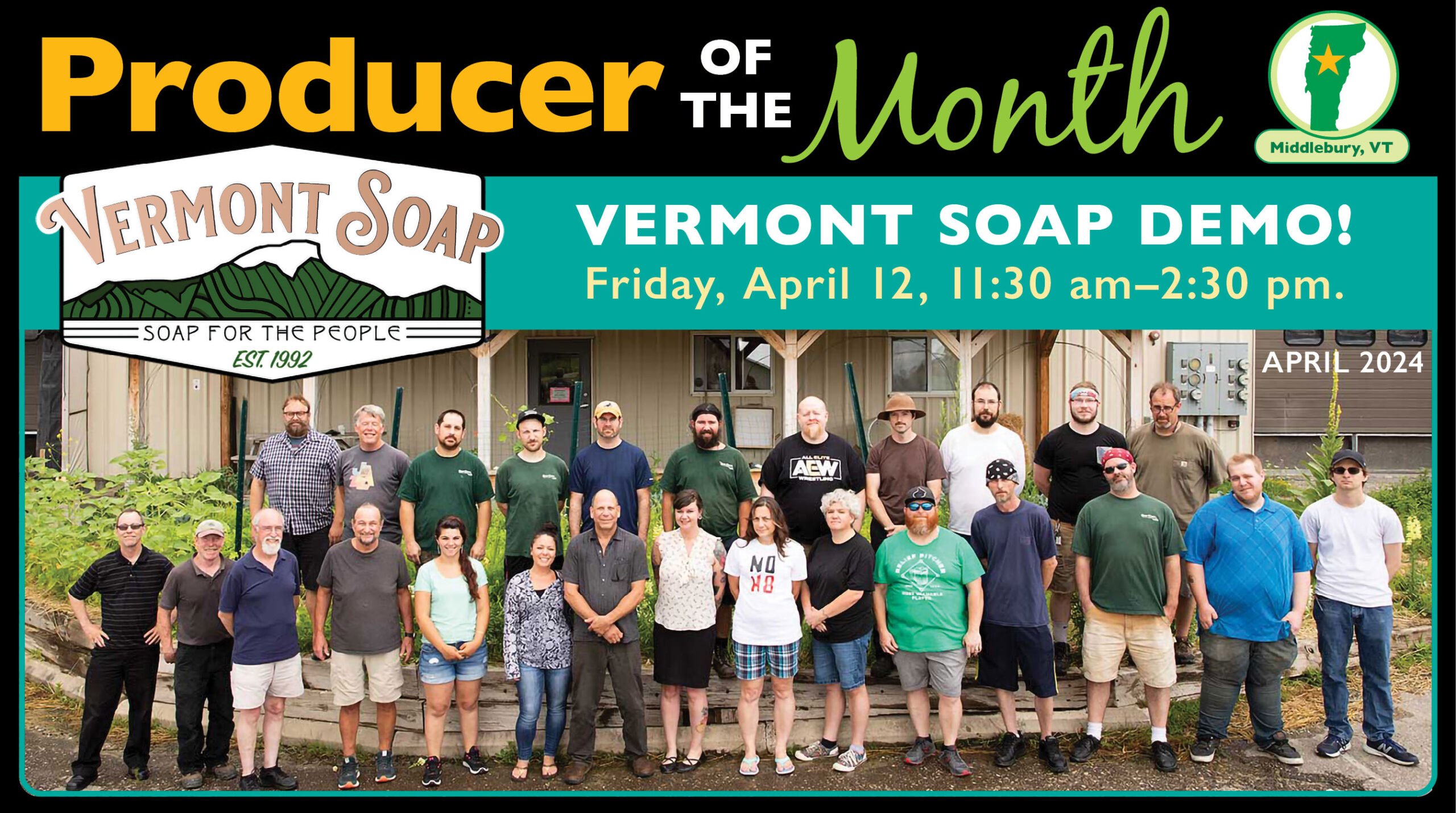
As a very young man in the 1980s, Larry Plesent started a successful window washing business. He was driven, energetic, bright, and creative. It seems the only thing that kept him down was this terrible rash that appeared on his forearms and wouldn’t go away for almost a decade.
No one in the medical community was able to properly diagnose or treat his ailment. It took years for him to understand what had happened and to find a solution. It turns out that rash was a symptom of being chemically injured from the window washing fluids he used. The “aha moment” came when he used a bar of hand-made soap that he’d purchased at a farmers’ market, and the rash went away. That set him on a lifelong path of learning about chemical sensitivity, and sparked what became his mission: to make equally effective but safe replacements for soaps and common household cleaners. This remains the core of Vermont Soap’s mission today.
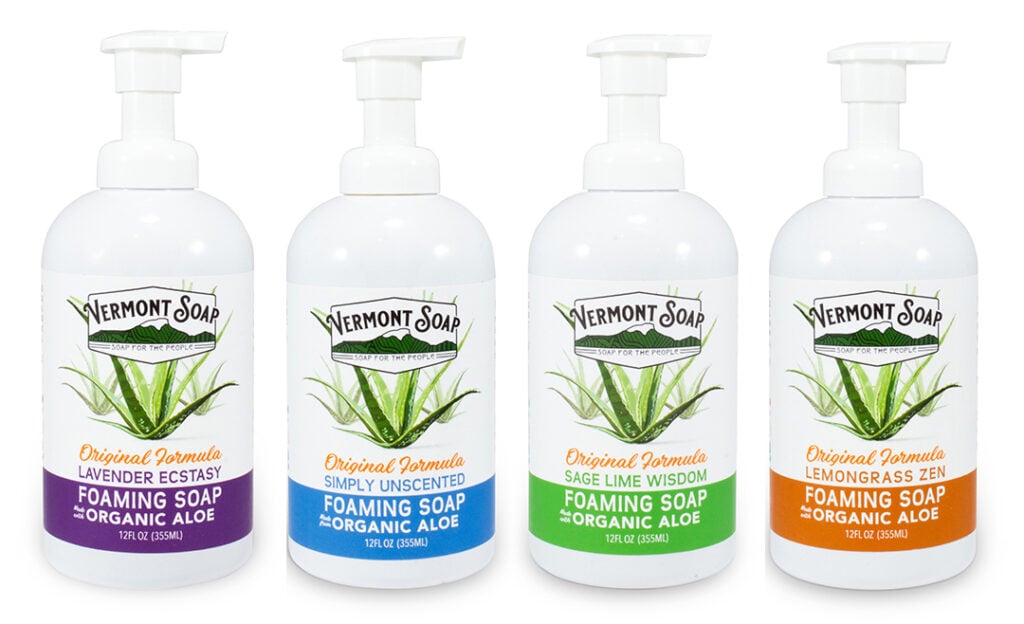
Now, imagine it’s 2024, and you come to the Brattleboro Food Co-op to buy some hand soap. There are many options. They all look decent, with appealing labels and logos, and besides the look of the bottles, variety of fragrances, and the prices, it’s hard to spot any obvious differences. In this situation, it’s hard to understand why you’d want to pay more for Vermont Soap’s humble foam pump with the old-timey logo. It takes a little digging and price comparing to fully understand what’s going on. If you take a moment to read the label, you’ll see that their foaming hand soap is made of a short list of ingredients that are pronounceable, familiar, and clean: Organic Saponified Oils (Coconut, Olive and Jojoba), Vegetable Glycerin, Rosemary Extract, Organic Aloe Vera. For this level of purity and quality, you can find no better bargain. Even other brands that seem to be comparable in quality and at a lower price actually just have less product per container.
Like many of our older businesses, it’s easy to take Vermont Soap for granted. After all, their products have been on our shelves for thirty years—that’s longer than a lot of their potential customers have been alive! But Vermont Soap is special—so special, in fact, that when Emi Shobu visited Vermont from Japan in the early aughts and tried it, she decided to become a registered Vermont Soap Co. agent so that she could offer these products in her home country. Vermont Soap Company has been on the vanguard of the organic and natural bodycare movement in Japan ever since; it’s been given to royalty, stocked at classy hotels, and offered in catalogs full of high-quality goods.
Similar to our Co-op, Vermont Soap has ridden the waves of the market. The entire natural care industry, once a peripheral sector of the marketplace, has soared from obscurity to fierce competition. Back in the early nineties, unscented natural soaps made without cancerous additives were a fringe interest, much like brown rice and tofu were when the BFC came about in the mid-’70s. But now, these products are widespread, well-known, and peddled by big businesses.
There’s an article that was published a few years ago in which Larry Plesent said, “For over 27 years Vermont Soap has been making the type of products that everyone will be using in our more sustainable near future.” It sounds like a pie-in-the-sky kind of sentiment, but it’s coming true: visit big box stores anywhere and you’ll see gentler, safer alternatives to the harsh, mainstream soaps and cleaners. Vermont Soap has been quietly contributing to this revolution in a major way through their “white label” or “private label” accounts. That means other brands contract with Vermont Soap to create products they sell under their own brand. Some of these brands require that Vermont Soap sign an NDA (non-disclosure agreement), and some brag about their Vermont Soap partnership. But it doesn’t matter: what matters is that Vermont Soap is carrying out its mission to make households across the country safer and healthier for people and the natural world, and thus is able to support its employees and community. Vermont Soap’s private label business now makes up about 80% of their sales, and reaches far beyond Vermont to places like Texas and California, and even crosses both our borders into Mexico and Canada.
Vermont Soap Company’s own label, however, is more special and regional. While their private label products are still high quality, Vermont Soap’s own branded products are their own unique recipes based on years of experience with soapmaking, effective application of essential oils, and research into chemical sensitivity. At the BFC, we started using their unscented foaming soap in all our bathrooms—a testament to how much we stand behind their products. And, coming soon, we’ll have some of their products available in the Bulk department, which is particularly exciting because of their unique bulk packaging.
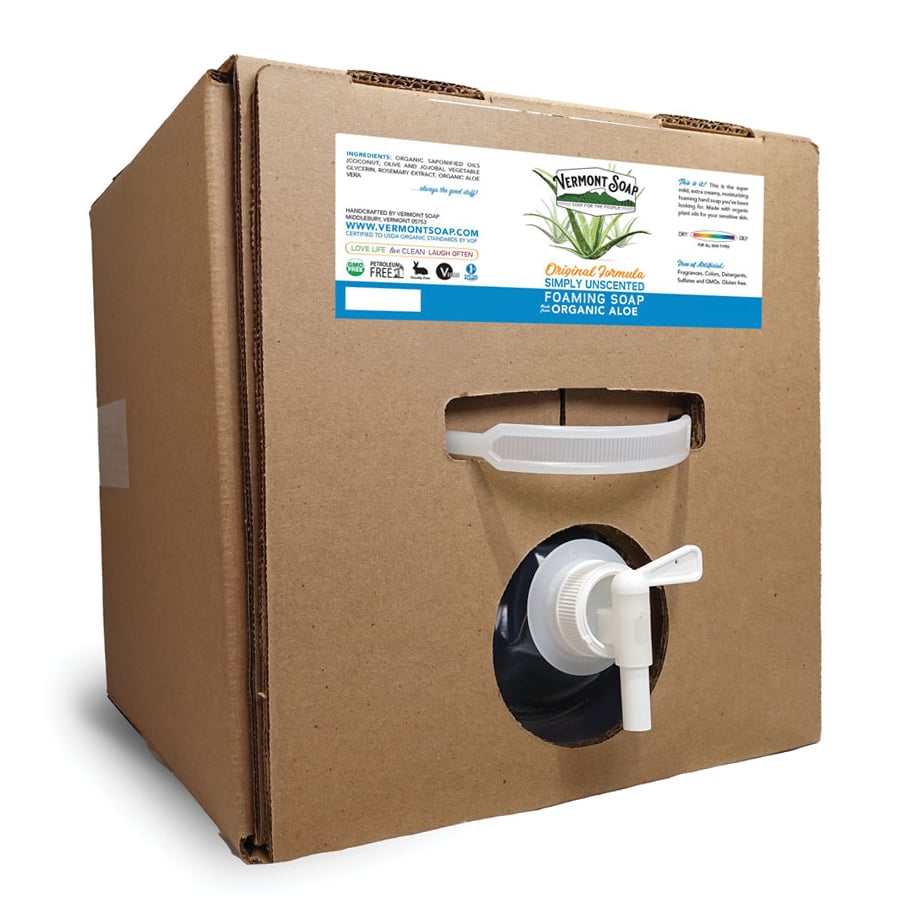
Instead of regular hard plastic jugs or buckets, Vermont Soap’s bulk cubes, as they call them, are made of cardboard with an inner plastic bladder. There’s still plastic involved to contain the large quantity of liquid, but much less than with typical bulk liquid packaging. Three of their products will be available to refill into your own jars: unscented foaming hand soap (the same as we have in our bathrooms), unscented laundry soap, and Spring Breeze scented laundry soap.
Vermont Soap has about thirty employees who work at their facility in Middlebury, VT, many of whom have been on staff for a decade or more. Since the beginning, they’ve paid a living wage, and have been a place of respect and empowerment for everyone who works there, from the production floor to the financial offices. The actual business model is more traditional—it’s not an ESOP or a cooperative—but the approach is values driven. The proof of that is in the longevity of people’s employment there. Matt Drinkwine, who was interviewed for this piece, estimates that about half of the staff have been working at Vermont Soap for over a decade.
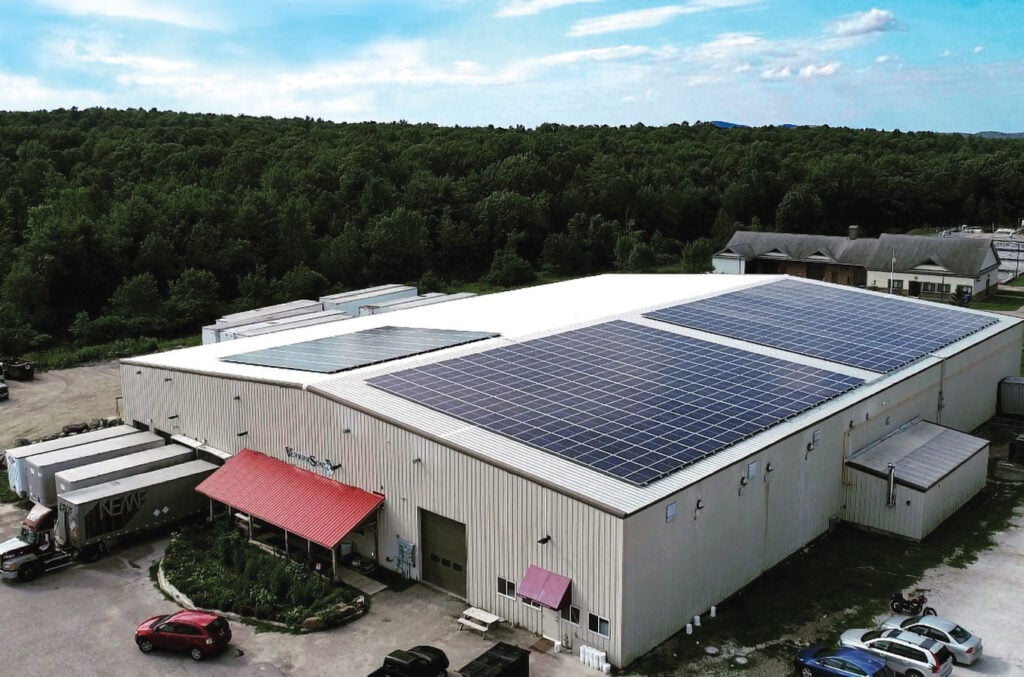
The company also invested in solar panels on their production facility, which powers all their electricity needs (the steam-jacketed vats that are used to create their liquid soaps still require natural gas). And their sourcing is top notch, which is vital for any soap business. Many of the ingredients we’re accustomed to seeing in the average bottle of hand soap come from somewhere far away across the globe. If those ingredients aren’t sourced responsibly, they’re probably contributing to the destruction of the rainforest, compromised in their quality, produced with unfair labor practices, or otherwise causing more harm than necessary. The choice to purchase products from businesses like Vermont Soap Company that are committed to doing right truly does have an impact on the world.
The truth is, there is simply too much to tell when it comes to a business like Vermont Soap Company to fit into one article. Larry Plesent’s story alone could fill an entire book (actually, it has—he’s written a few!). But for those of us who care about our skin, who believe that what we put on our skin should be taken just as seriously as the food we put in our mouths (and the food we feed our loved ones), it’s enough to know that Vermont Soap makes good stuff that’s safe, effective, and healthy.
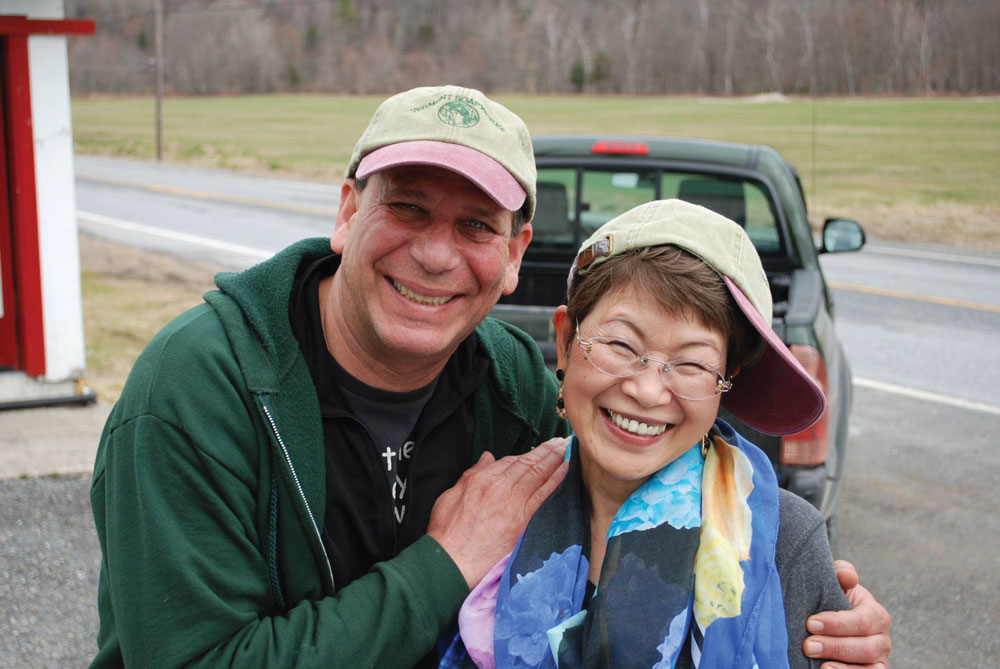
By Ruth Garbus
About Producer of The Month

Shop Online

On Sale Now!

